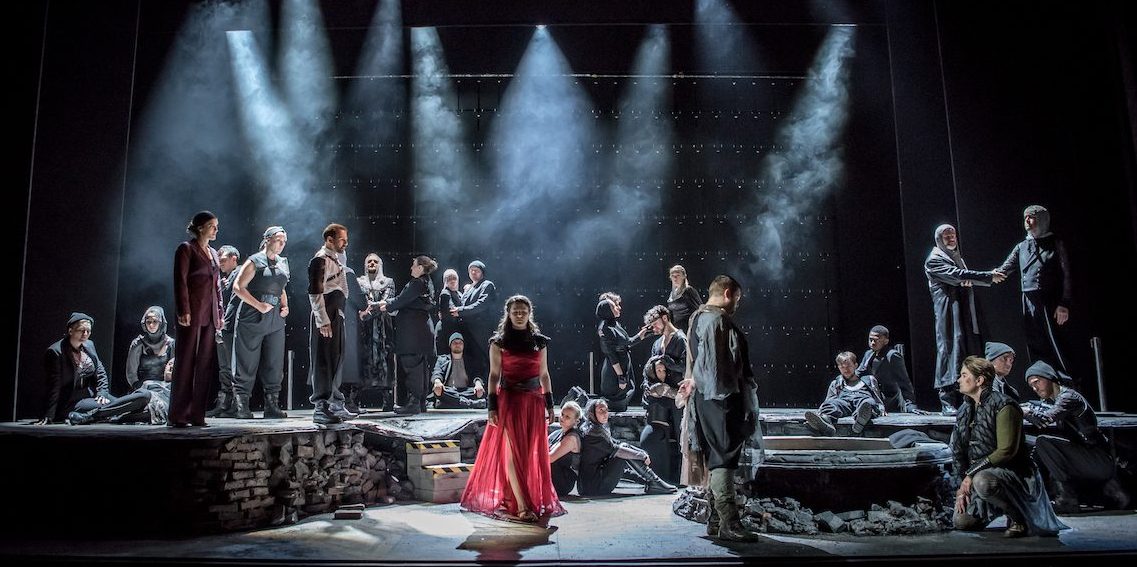Rossini wrote some 39 operas and is best remembered for his comedies, particularly The Barber of Seville, but his output was evenly balanced between comic and serious works and in recent years operas like William Tell and Tancredi have seen revived interest. Whether La Donna del Lago really deserves to be on this revival list remains for me a moot point. This Buxton Festival production makes a case for that but, enjoyable as the work is, the given label ‘melodramma’ – though it had a different meaning in 1819 – is all too accurate. What this production does have – and what gives it a high ranking from me – is a set of fine performances topped by a stellar turn from Maire Flavin as the lady herself.
The story is based on an early poetic work by Sir Walter Scott. Elena, the eponymous Lady of the Lake, is the daughter of Duglas, head of a clan that is conspiring to overthrow the King, James V. To cement the alliance of anti-royal forces, Duglas wants Elena to marry Roderigo, chief of the Highlanders, but Elena has already pledged her love to the absent Malcolm. Uberto, a lost hunter, appears (King James in disguise) and he falls in love with Elena. Malcolm re-appears and joins the anti-royal alliance but incurs the suspicion of his comrades. A battle ensues, the rebels are defeated but, in the nick of time, Elena persuades Uberto, his true identity at last revealed, to pardon her father and her lover.
Director Jacopo Spirei sets the sixteenth century action within a modern frame – an archaeological dig. One character remains in modern dress as all the others don period costumes and she remains visible throughout, as if to ask us to imagine the fate of Elena through modern eyes. In the second half this character becomes the curator of a museum and also plays the role of Elena’s confidant, Albina. It is an effective way of defusing some of the wilder moments of melodrama – the final scenes of royal splendour are set as if in the display case of the museum.
But the best part of the evening is provided by a group of singers who seem perfectly attuned to Rossini’s florid musical style which demands vocal technique of the highest standard to do it justice. Tenors Nico Darmanin as Uberto and John Irvin as Roderigo are simply splendid – Darmanin has one aria as difficult as the famous tenor’s test in Fille du Regiment and sings it brilliantly. As Elena’s lover Malcolm, a ‘trouser role’, mezzo Catherine Carby is very fine, with ringing top notes and a finely-turned dose of lover’s angst but best of all is Maire Flavin as Elena – it’s a tour de force of the finest Rossinian style, encompassing music of grief, longing, and defiance and she ends sounding stronger at the finale than in the first scene – a remarkable performance of a taxing role. The Northern Chamber Orchestra under Giulio Cilona sound rich and sprightly all evening.
It is a tremendous evening of musical magic but it is not a story that carries much power or offers dramatic truths – even the mercy of the king in forgiving the rebels at the end feels a bit limp. But, for all that, it is a triumph for the Buxton Festival and the their wonderful jewel of an opera house is well served.

